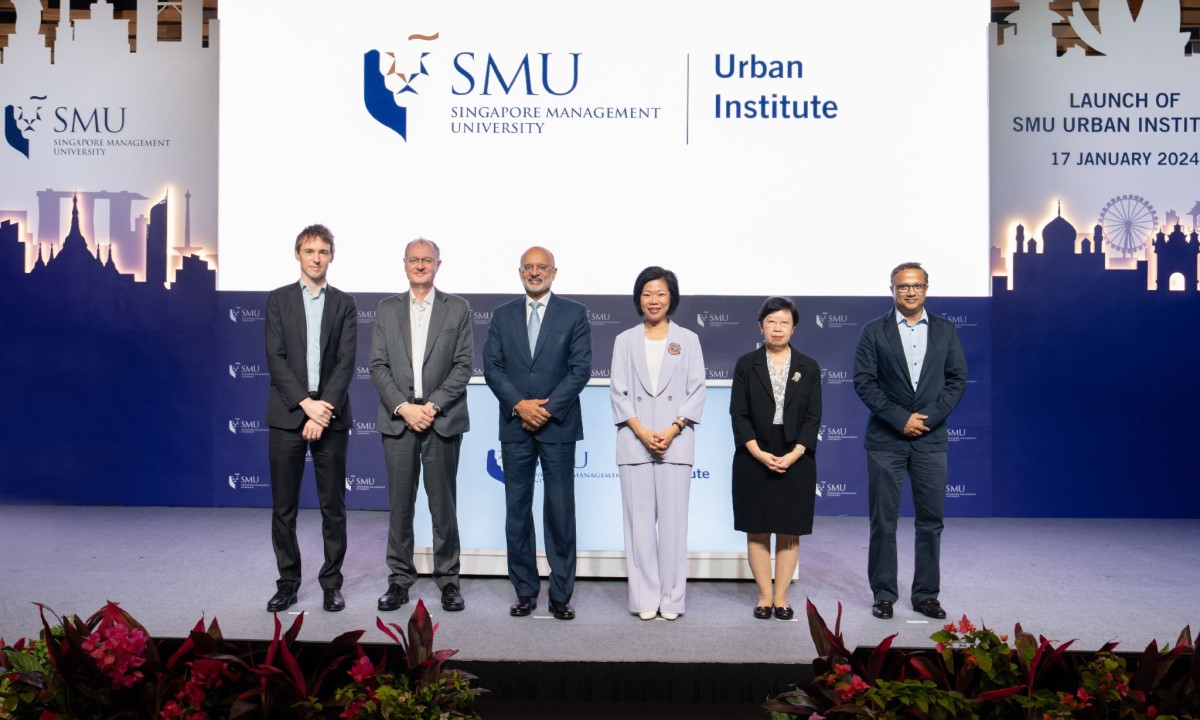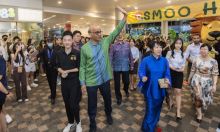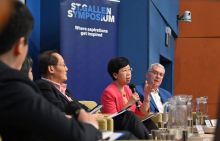SMU launches Urban Institute to study cities in Asia

On 17 January 2024, the SMU Urban Institute (UI) was proudly launched at SMU Hall. The new research institute is dedicated to multi- and inter-disciplinary research on cities in Asia and was launched in response to trends that underscore a critical need to prioritise urban research. These include the rapid urbanisation of many Asian cities, and the need for policymakers to face increasingly complex and pressing challenges when it comes to balancing urban growth with the development of resilient and sustainable cities.
The launch marked a significant step forward in SMU’s commitment to contributing to Asia’s growth and managing the ensuing impacts on its peoples and environments, as well as in driving sustainable living solutions.
SMU UI will look beyond the development of infrastructure, and will also consider the socio-cultural aspects of urbanisation, and the balance between urban growth and sustainability.
At the launch, SMU President, Professor Lily Kong said, “Our investment in establishing UI cannot be overstated. It is about undertaking deep, rigorous research to enhance our understanding of cities.
“But more than that, it is about laying the groundwork for liveable, resilient, and inclusive cities in Asia. As Asian cities grow at an unprecedented pace, the transformative potential of the UI becomes even more pronounced.”
A platform to exchange experiences and research
SMU UI is helmed by SMU Associate Professor of Geography Orlando Woods, who is also Associate Dean (Research and Postgraduate Programmes) of the University’s College of Integrative Studies.
It is the first research institute in Southeast Asia that aims to explicitly speak to the challenges facing Asia’s cities. Some of the issues it hopes to address includes the sensory, socio-cultural, and economic experiences of living in a city, especially with regards to the inequalities arising from wealth accumulation. It will also examine how infrastructure in terms of buildings, policy and regulation can enable or limit the growth of cities.
The institute will play the role of an interface through which scholars, policymakers, communities, and industry can come into meaningful contact and engagement with one another.
The institute was inaugurated by Ms Ann Sim, Senior Minister of State for Foreign Affairs and National Development. She congratulated SMU on the launch and noted that although Singapore has overcome some of the pressures of urbanisation, the challenges are constantly evolving as urban pressures continue to grow.
This makes it important for cities to learn from one another and explore collaborative solutions for sustainable urban development.
“In the early days of our independence, Singapore experienced acute urban challenges: overcrowding, slums, traffic congestion, environmental pollution, floods, and water shortages,” she said.
“These challenges remain pressing in many cities around the world even today. The urban solutions developed by Singapore are of interest to these cities, even as we learn and adapt good ideas from others. SMU’s Urban Institute will play an important role in promoting the exchange of experience and research between Singapore and our neighbours in Asia, and in helping policymakers and practitioners create better living environments for all.”
Establishing global research partnerships
Besides focusing on research that considers the Asian urban experience and addresses the challenges faced by our fast-growing cities, UI will also work toward developing urban research partnerships with global universities and think tanks.
Together with the recent launch of SMU Overseas Centres in Indonesia and Thailand, the institute has already started to develop partnerships with like-minded collaborators in the region. On top of this, it is also pursuing research and collaborations further afield, with other schools, institutes and initiatives that are focused on the study of cities.
At the launch of the UI, SMU signed a Memorandum of Understanding with Thammasat University’s Design School. Under this agreement, the two schools have agreed to facilitate the exchange of data, documentation, and research materials; the exchange of students and researchers; as well as joint organisation of seminars and symposiums.
Other schools that SMU UI is in talks with include the University of Melbourne and the University of Toronto. These collaborations underpin the importance of sharing expertise, data, and information with cities to learn from each other in a fast-changing urban landscape.
Following the launch ceremony was a panel discussion on “Sensing the City”, where panellists examined the human sensory experience of cities and how to reconcile the tension between human and digital forms of sensing for developing more liveable and human-centred cities.
The panel was moderated by Associate Professor Woods, and featured Professor Jane Jacobs of Monash University, Indonesia; Mrs Rosa Daniel, Dean, Culture Academy, Ministry of Culture, Community and Youth; Mr Wen Tung Chiu, Group Director (Research & Development), Urban Redevelopment Authority; and Mr Luke Wu, Head of Innovation, Kajima Development.


